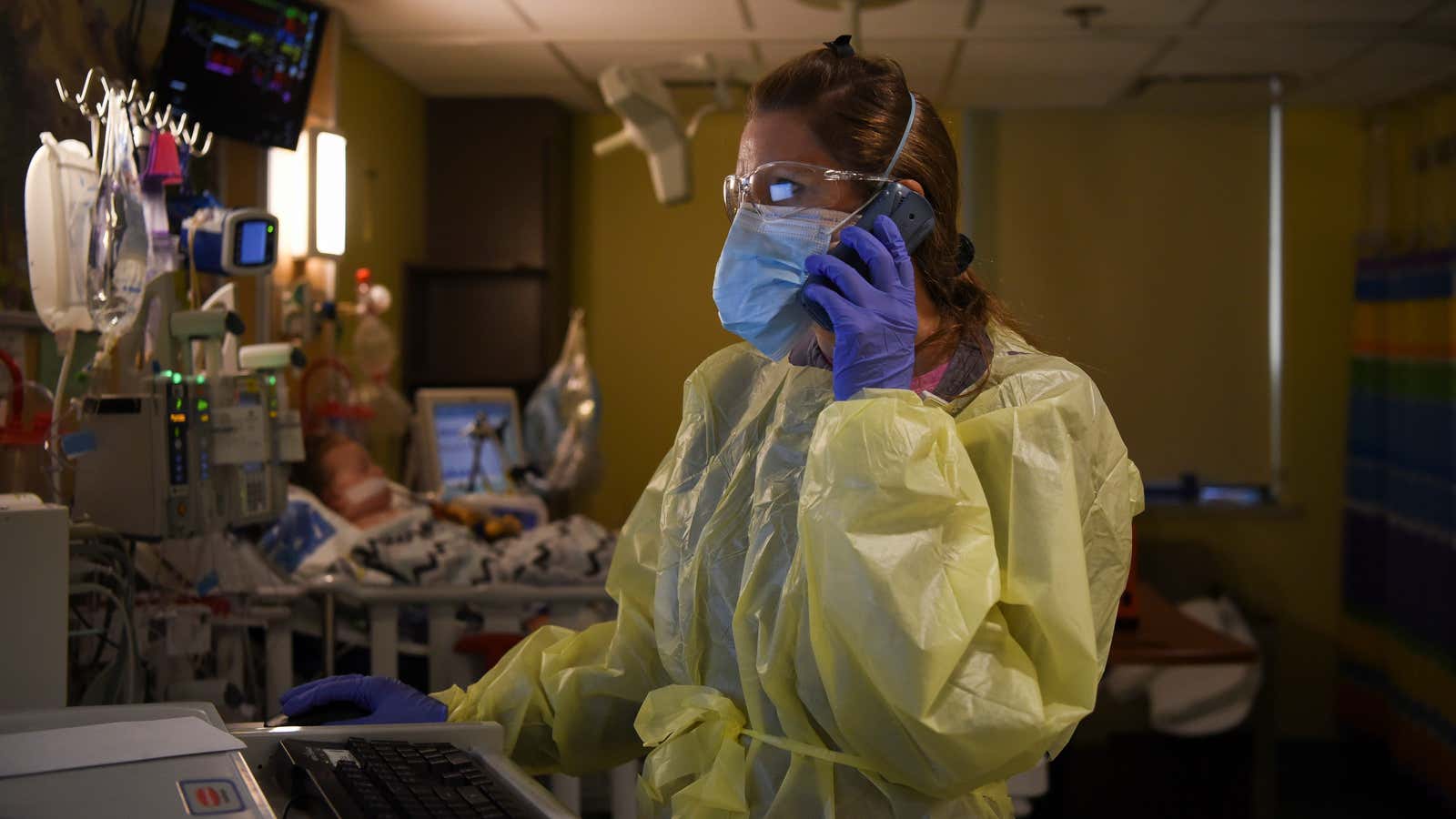US healthcare workers have never been more in need, yet in the past 18 months they have been leaving their jobs in droves, and don’t seem to have much intention of going back.
The latest job report from the US Bureau of Labor Statistics showed yet another decline in the healthcare workforce, which lost 18,000 jobs in September, following a loss of more than 40,000 jobs in the first quarter of 2021. Nursing and health care facilities accounted for most of the losses, losing 38,000 jobs in September, while hospitals lost 8,000. Healthcare jobs for services provided outside a hospital, such as in walk-in clinics, actually increased by 28,000, but not enough to compensate for the other losses.
Altogether, the healthcare workforce lost more than half a million workers since February 2020, of which about 400,000 were in nursing and residential care facilities.
It’s the candidates, not the job offers, that are missing
The healthcare workforce dropped dramatically in April 2020, and has yet to recover. Although many of the organizations that laid off workers in the early stages of the pandemic have been hiring back, it hasn’t made up for the large volume of healthcare personnel that quit.
Even before the pandemic, there was a significant shortage of hospital and nursing workers. A 2018 estimate by health adviser Mercer projected that about 600,000 healthcare workers would be needed by 2025, due to a lack of specialized workforce and the growing needs of the aging population. But given the current shortage, and considering more workers might continue to quit, the US health industry might find itself short of over a million professionals in only a couple of years.
After the initial drop in job offers for healthcare workers in the very early months of the pandemics, which were caused by layoffs and facility closures during the lockdown, demand has skyrocketed, and is scarcely filled by the ever-dwindling availability of qualified personnel.
Heights of burnout
The main reason so many healthcare workers are leaving their jobs is straightforward: They can’t take it anymore. According to a survey by analytics firm Morning Consult, as many as 18% of all healthcare workers have quit their jobs in the past 18 months, compared to 12% who were laid off early in the pandemic. Even among those who stayed, about a third report thinking of leaving their job, citing poor pay, burnout, and excessive workload as the cause. Additionally, a minority of workers are resigning over vaccine mandates.
A vicious cycle sets in, too. The more healthcare workers leave their jobs, the more those who stay have to compensate for staffing gaps, which in turn pushes them into burnout. Meanwhile, the workers who can are turning to freelance, particularly nurses who are working as contract staff with much higher salaries than full-time workers.
The shortages are disrupting care. In Lowville, in New York state, the hospital had to stop offering childbirth services since it couldn’t replace the staff that quit after refusing a vaccine. Some employers are turning to international recruiting. Detroit’s Henry Ford Health, for instance, filed paperwork to hire 500 nurses from the Philippines in order to fill some of its 1,000 open postings, which lead it to temporarily reduce its bed capacity.
